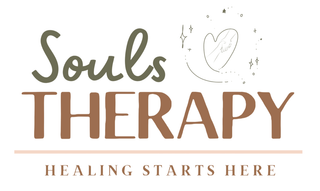Understanding the Connection.
Anxiety can be overwhelming, not just mentally but physically, too. One common concern many people have is whether anxiety affects their blood pressure. In this post, we’ll explore the relationship between anxiety and blood pressure, how this connection works, and what you can do to manage both.
How Anxiety Affects the Body
When you’re anxious, your body activates its stress response, often referred to as the "fight or flight" mode. This releases stress hormones like adrenaline and cortisol, which prepare your body to face a perceived threat. As part of this response:
Your heart rate increases.
Blood vessels constrict to redirect blood to essential organs.
Blood pressure temporarily rises.
This response is helpful in short bursts, but chronic anxiety can lead to sustained periods of elevated blood pressure and other health concerns.
Can Anxiety Cause High Blood Pressure?
Anxiety itself does not cause long-term hypertension (chronic high blood pressure). However, it can cause temporary spikes in blood pressure during moments of acute stress or panic. These spikes are typically short-lived and subside when anxiety decreases. Over time, though, frequent anxiety-induced blood pressure surges may contribute to long-term cardiovascular risks.
Temporary vs. Chronic High Blood Pressure
It’s important to differentiate between temporary spikes and chronic hypertension:
Temporary Spikes: These occur during moments of acute anxiety or panic attacks. While they’re not dangerous on their own, they can be concerning if they happen frequently.
Chronic Hypertension: This is a long-term condition that develops from sustained high blood pressure and can lead to serious health issues, such as heart disease or stroke.
While anxiety alone may not cause chronic hypertension, behaviors associated with anxiety—like poor sleep, lack of exercise, or emotional eating—can contribute to developing high blood pressure over time.
How to Manage Anxiety and Blood Pressure
If you’re worried about the impact of anxiety on your blood pressure, here are steps you can take to manage both:
1. Practice Relaxation Techniques
Relaxation techniques can help lower anxiety and prevent temporary spikes in blood pressure. Some effective methods include:
Deep Breathing: Slow, controlled breathing signals your body to relax.
Meditation and Mindfulness: These practices help calm the mind and reduce stress.
Progressive Muscle Relaxation: Tensing and releasing muscle groups helps release physical tension.
2. Stay Active
Exercise is a powerful way to reduce anxiety and improve cardiovascular health. Activities like walking, yoga, and swimming can help regulate both your mood and blood pressure.
3. Avoid Stimulants
Caffeine, nicotine, and other stimulants can increase your heart rate and exacerbate anxiety, leading to blood pressure spikes. Limit or avoid these substances to keep both anxiety and blood pressure in check.
4. Monitor Your Blood Pressure
If you’re experiencing frequent anxiety, keeping track of your blood pressure can help you understand its patterns and triggers. Talk to your doctor about whether a home blood pressure monitor is right for you.
5. Seek Professional Help
Anxiety and its effects on the body can feel overwhelming. Consider seeking help from a therapist or counselor to address your anxiety and develop coping strategies. Cognitive-behavioral therapy (CBT) and other techniques can be incredibly effective.
Lifestyle Tips for Long-Term Wellness
Adopting healthy habits can help you manage anxiety and support a healthy cardiovascular system:
Get enough sleep each night.
Eat a balanced diet rich in whole foods, fruits, and vegetables.
Stay hydrated throughout the day.
Build a support network of friends, family, or a mental health community.
Support for Your Journey at SOULS THERAPY with Cognitive Behavioral Therapy worksheets and workbooks downloads.
Managing anxiety and its physical effects is a journey, but you don’t have to do it alone. At SOULS THERAPY, I offer mental health resources and therapeutic downloads to help you cope with anxiety and improve your overall well-being. From guided meditations to anxiety journaling prompts, my tools are designed to empower you to live a calmer, healthier life.

